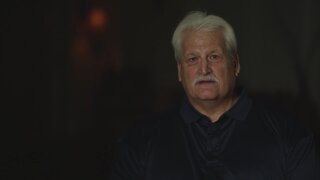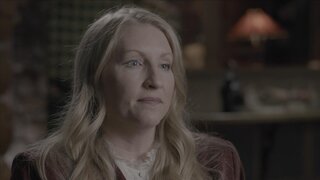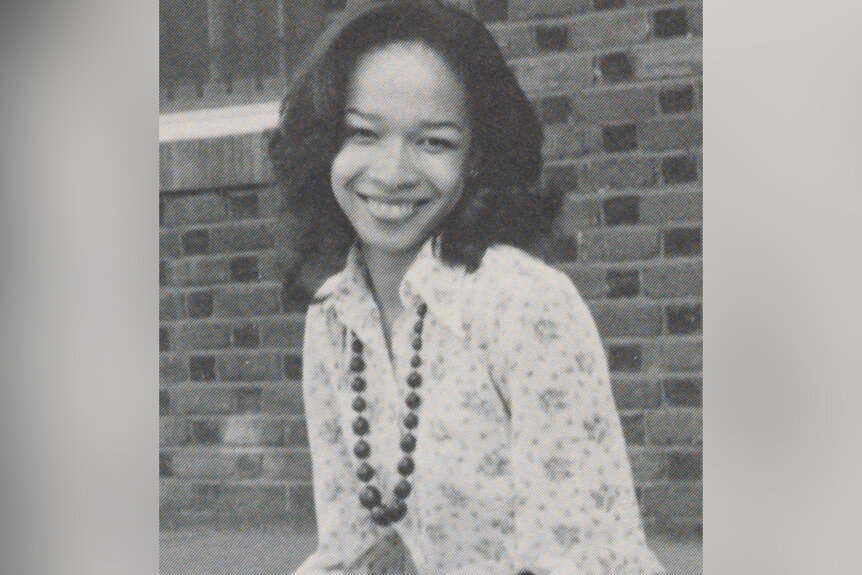Create a free profile to get unlimited access to exclusive videos, breaking news, sweepstakes, and more!
Millionaire Husband Driven By Greed Paid $25K For His Wife’s Hit-For-Hire In Atlanta
Atlanta police searched for a hit man who delivered flowers — and a fatal gunshot — to Lita Sullivan, a woman divorcing her rich husband.
In the upscale Atlanta area of Buckhead it can appear that rich residents are immune from crime. They’re not.
On January 16, 1987, Lita Sullivan, 35, a well-connected socialite, opened the door expecting a delivery of roses.
She was shot “right between the eyes,” Clint Rucker, former executive district attorney, Fulton County, Georgia, told “The, Real Murders of Atlanta,” airing Sundays at 8/7c on Oxygen.
Detectives found the victim’s friend, Poppy Marable, hiding upstairs. She and Lita had been having coffee. When the gun fired, Poppy ran for cover —she never saw the shooter’s face. However, a neighbor outside fetching his morning newspaper did see the assailant, who he described as a stocky middle-age white male about six feet tall.
Investigators decided to go to the flower shop listed on the box, where the florist said one man came in to buy the flowers and that he was with two more people in a vehicle. He provided details for a police sketch.
They also looked into Lita’s estranged millionaire husband, James Sullivan, who accumulated wealth through a liquor distribution company he inherited and sold, PEOPLE reported. James lived in Palm Beach, Florida. James, who is white, blamed his chilly reception by Florida’s elite on the fact that he “had a Black wife,” said Monica Kaufman-Pearson, former TV news anchor. Lita had relocated to Atlanta after eight and a half years of an unhappy marriage and filed for divorce. There were also allegations of adultery, added Rucker.
However, James said he had an alibi: He claimed he was in Palm Beach the day of the murder. He had played tennis and dined out.
A fresh lead emerged, though, when an informant said he was sitting in an Atlanta bar with someone named Thomas Henley and another man. Henley, who’d spent time behind bars for violent crimes, allegedly said he had bought flowers that morning and shot a Black woman.
The florist identified Henley as the man who’d purchased the flowers the day of the homicide. But when the case against Henley went to court, the judge dismissed it, explained John Lang, retired special agent with the Georgia Bureau of Investigation: “There was just no evidence that he was he was the one that was involved in the murder.”
Investigators refocused their efforts on James Sullivan. They scrutinized his phone records and noticed one call, made an hour after Lita’s murder from Atlanta to Palm Beach, which raised suspicions. It was made from a pay phone and lasted 45 seconds. Who made the call — and why?
Calls that were made between James and Marvin Marable, Poppy’s husband, also raised red flags. Marvin, though, said James simply reached out because he was anxious about his impending divorce.
“He was afraid that an Atlanta jury would not be sympathetic to him at all,” Marvin told producers, explaining James wanted the proceedings to take place in Palm Beach.
Police contacted Lita’s divorce attorney, who revealed the details of the couple's matrimonial prenuptial agreement: She could walk away with a maximum of $250,000. Investigators wondered if a man worth 20 times that amount would have a motive for murder, according to “The Real Murders of Atlanta.” However, Lita’s allegation of adultery could challenge the enforceability of the prenup.
Detectives were convinced that James, driven by finances, was the man behind his wife’s murder, but they lacked evidence to arrest him. And the clock was running out because of a five-year limit on pressing charges in a contract murder.
Days before time was up, investigators moved forward in federal proceedings. James Sullivan was arrested in Palm Beach and charged in a hit-for-hire.In November 1992, the trial commenced. James Sullivan pleaded not guilty.
In a recording of the proceedings, James told the court that losing his wife violently was “the worst thing that could happen to a husband.” The judge found James not guilty, said defense attorney Don Samuel. “He closed the book and walked off the bench. It was astounding.”
Two years later, in 1994, Lita’s family pursued the case in a civil court proceeding. James represented himself, and he was found liable for Lita’s death. Lita’s family was awarded $4 million, but getting their hands on that money was another matter. James claimed he had no money, fled Florida, and disappeared. He was eventually tracked to Costa Rica, where American laws didn’t apply.
In 1996, nine years after Lita’s murder, a newly-elected DA made bringing James Sullivan to justice a top priority. Two years later, after a TV program aired about Lita’s case, a woman named Belinda Trahan reached out. She told investigators that she’d been in a relationship with Phillip Anthony Harwood, a man prone to anger, for a decade while they lived in Albemarle, North Carolina, according to Rucker. After leaving the relationship, Trahan was ready to spill everything she knew about Lita’s murder.
She said that after coming home from a trip to Atlanta, Harwood said he was going to do a job for a man who wanted his wife out of the picture. Harwood, she said, was paid $25,000 for the hit.
When investigators went to Harwood’s residence, he said, “I’ve been waiting for you boys for a long time ... I’ve been waiting for this day for a long time,” according to Lang. He pulled a folded slip of paper out of his wallet. On it was James Sullivan’s phone number.
Harwood convinced the district attorney Paul Howard to let him plead guilty to voluntary manslaughter, provided he’d name and testify against the man behind the hit. But prosecutors realized that Harwood’s criminality made him a less-than-ideal witness, so they worked to bolster and build their case. They found a receipt showing that Harwood was connected to James: He had delivered furniture James in Florida. Both men’s names were on the document.
Harwood also admitted he had made that 45-second phone call to James on January 26, 1987 from Atlanta to Palm Beach. It was a brief coded message that his wife was dead.
Authorities now had enough evidence to go to Costa Rica to arrest James, but he fled before they got there. He was put on an Interpol watch list, though for years he eluded authorities.
In July 2002, he was spotted by a police officer in Thailand who had knowledge of the case. He alerted the FBI.
In a Bangkok jail after being arrested, James brought up double jeopardy. “I explained to him how in the United States, you can be prosecuted twice, despite the double jeopardy clause,” said Samuel. “You can be prosecuted once in federal and once in state court for the exact same crime.”
It took years to extradite Sullivan back to the U.S. At the March 2006 trial, James Sullivan was found guilty. He was handed a life sentence.
Harwood was released from prison in 2018.
To learn more about the case, watch “The Real Murders of Atlanta,” airing Sundays at 8/7c on Oxygen or stream episodes here.























